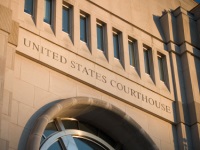On June 1, the Second Circuit in Tilton et al. v. SEC, No. 15-2103 (2d. Cir. Jun. 1, 2016), echoed recent Seventh and D.C. Circuit decisions (respectively, Bebo v. SEC, No. 15-1511 (7th Cir. Aug. 24, 2015), cert. denied, 136 S. Ct. 1500 (Mar. 28, 2016), and Jarkesy v. SEC, No. 14-5196 (D.C. Cir. Sept. 29, 2015)) in finding that constitutional or other challenges to SEC proceedings cannot go forward in court until the administrative proceeding ends; review can only be sought as an appeal from a final decision by the Commission. The Second Circuit’s decision in Tilton creates unanimity among the circuit courts that have addressed the issue to date, although, as we previously reported, the Eleventh Circuit is likely to rule on the issue sometime this year in Hill v. SEC, No. 15-12831. Unless the Eleventh Circuit bucks this trend and creates a circuit split, it now looks unlikely that the Supreme Court will weigh in on this issue (particularly because the Supreme Court previously denied a petition to review the Seventh Circuit’s decision in Bebo).
READ MORE →











